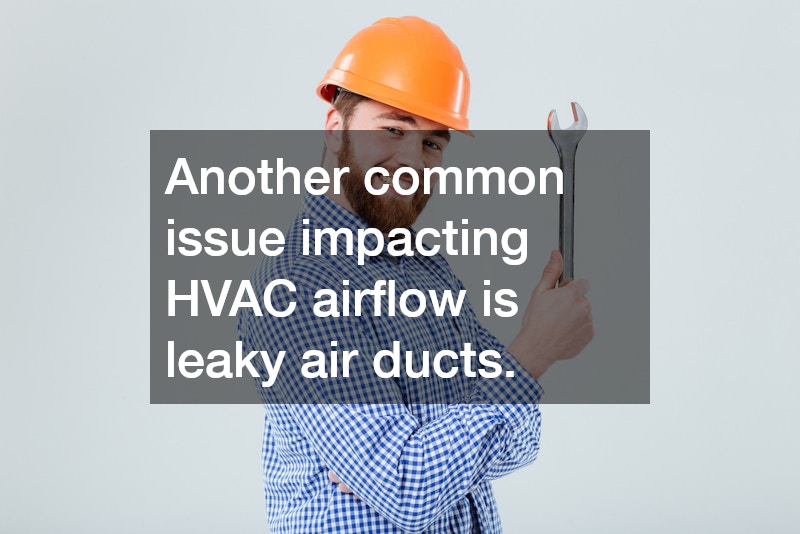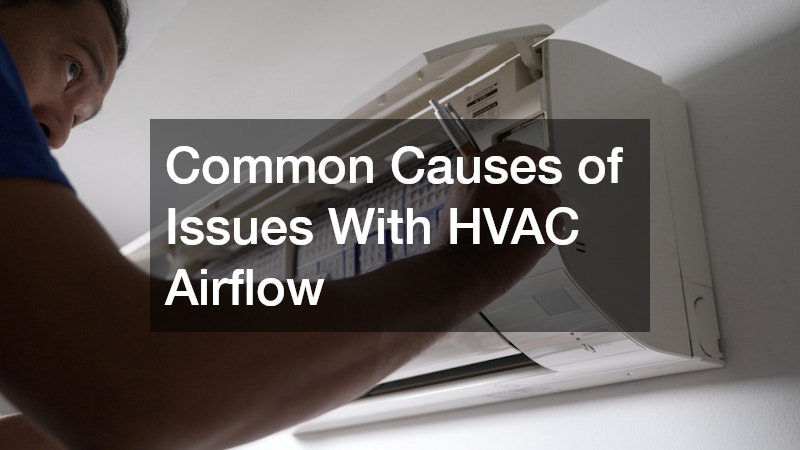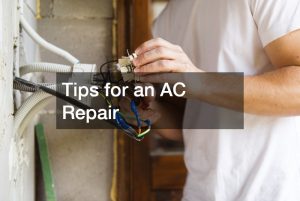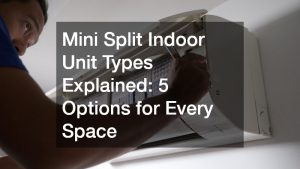When experiencing discomfort in your living space or noticing that your HVAC system isn’t performing as expected, poor airflow might be the root of the issue. HVAC systems are designed to maintain comfort by efficiently circulating air throughout your home or business. Unfortunately, several common issues can disrupt this airflow, leading to significant discomfort and increased energy bills.
Blocked or Dirty Air Filters
The first and often most common cause of HVAC airflow problems is blocked or dirty air filters. Air filters are crucial in trapping dust, pollen, and other particles, keeping your indoor air clean and breathable.
However, when these filters become clogged with debris, they restrict the air movement, causing your HVAC system to work harder than necessary to push air through.
Regular maintenance and replacement of air filters can prevent this issue. Ideally, air filters should be checked every month and replaced at least every three months to ensure optimal performance. Consistently neglecting this simple task can not only lead to poor airflow but also exacerbate problems like frozen coils or even system failures, all of which would necessitate professional HVAC services.
Ignoring the state of your air filters can have compounding effects on both comfort and energy efficiency. As the system struggles to maintain airflow, it consumes more energy, leading to higher utility bills. Moreover, the lack of adequate air circulation can cause certain rooms to remain cold while others become excessively warm, creating uneven heating or cooling throughout your space.
Leaky Air Ducts
Another common issue impacting HVAC airflow is leaky air ducts. Ducts are responsible for transporting air from the HVAC unit to various parts of a building, and any leaks or cracks can significantly reduce their efficiency. Leaks not only decrease airflow but also compromise indoor air quality by allowing contaminants to infiltrate the system.
Over time, ducts can develop leaks due to age, poor installation, or physical damage. Regular inspections by HVAC services are crucial to identifying and repairing these leaks. Sealing any leaks promptly ensures your HVAC system functions effectively, maintains air quality, and reduces energy costs.
In some cases, ductwork may be improperly designed, leading to airflow issues that are not immediately visible. Such problems require professional evaluation to redesign the ductwork and ensure it meets the specific needs of your building. Addressing these issues can significantly improve both the efficiency and performance of your HVAC system.
Obstructed or Closed Vents
Obstructed or closed vents are also a frequent cause of poor HVAC airflow. Vents must remain open and unobstructed to allow for proper air circulation; otherwise, your system may become overworked. Blocked vents can cause certain rooms to be hotter or colder than others, leading to discomfort and inefficiency.
Common obstructions include furniture, toys, or other household items inadvertently placed in front of vents. Homeowners should regularly check and ensure all vents are open and free of obstacles. Additionally, adjusting vent louvers allows for better control over airflow distribution throughout your home.
Moreover, some individuals mistakenly close vents in unoccupied rooms, hoping to save on energy costs, but this can actually harm the HVAC system. When vents are closed, pressure builds up in the ductwork, causing leaks and possibly damaging the system over time. To maintain system health and efficiency, it is essential to keep all vents partially open and ensure clear pathways for airflow.
Poor System Maintenance
Regular maintenance is crucial for keeping an HVAC system running smoothly. Without routine inspections and cleanings, various components can become dirty or faulty, leading to airflow problems. Issues such as clogged coils, worn-out belts, and low refrigerant levels are common culprits that could be easily addressed through regular maintenance.
Investing in scheduled HVAC services can prevent unexpected breakdowns and costly repairs. Trained professionals can identify potential problems before they escalate, ensuring the system remains reliable and efficient year-round. Regular tune-ups extend the life of your HVAC system, safeguarding your investment and maintaining comfortable indoor environments.
Ignoring maintenance not only affects airflow but also risks the systemic health of your HVAC equipment. Systems that run inefficiently consume more energy, and their components undergo undue stress, increasing the likelihood of breakdowns. A well-maintained system offers peace of mind and consistent comfort in addition to cost savings.
Improperly Sized HVAC System
Finally, an improperly sized HVAC system can severely impact airflow and overall performance. Systems that are too large or too small for a given space can lead to inefficiency, quick cycling, and unsatisfactory climate control. Proper sizing ensures that your HVAC system meets the specific needs of your home or business.
Professional installation includes an evaluation of your building’s size, insulation, and other factors to determine the correct system size. An oversized system can lead to excessive humidity and short cycling, while an undersized system struggles to maintain desired temperatures. Both scenarios result in poor airflow and inefficient operation.
Engaging experienced HVAC services for proper installation and sizing prevents unnecessary complications and costs over time. By ensuring the right fit, you pave the way for a system that performs optimally, reliably delivering the comfort and efficiency expected from your investment. Properly sized HVAC systems support effective airflow, contributing to a balanced and comfortable indoor climate.




